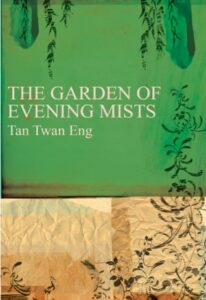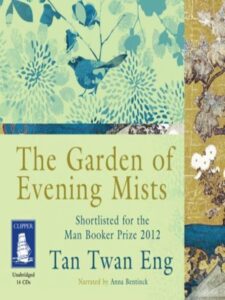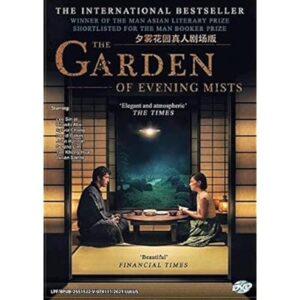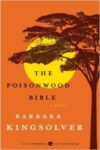What I’m Reading: The Garden Of Evening Mists by Tan Twan Eng
Just a few short weeks ago, on September 18, The Garden of Evening Mists by Malaysian author Tan Twan Eng was newly arrived on my TBR (To Be Read) table. And now I’ve read it, in quicksmart time — and enjoyed it, very much.

As mentioned on September 18, The Garden of Evening Mists was published to critical acclaim in 2012. It was shortlisted for the 2012 Man Booker Prize, and subsequently won the Man Asia Literary Prize and Walter Scott Prize for Historical Fiction, both in 2013.
The Garden of Evening Mists is the author’s second novel, and set in Malaysia during the World War Two period and the Malayan Emergency of the ca. 1950s. Within Malaysia, the story is almost exclusively set in the Cameron Highlands, a higher altitude area of hills and jungle, which lies north and slightly east of the capital, Kuala Lumpur.
The setting and historical setting caught my interest first, for the simple reason that I visited the Cameron Highlands as a child, and was old enough to remember details and picture the environment of the book from memory as well as imagination. The history of WWII in Malaysia is probably better known in NZ than the later Communist Emergency, but because of my childhood connection to the region, I know a little about both. Enough to give additional interest to the story’s historical setting, although I believe the story stands on its own in that respect.

Audio book
The Garden of Evening Mists’ narrator is Teoh Yun Ling, a Malyasian woman of Straits Chinese ethnicity. The story operates in three interwoven time periods: WWII, when Yun Ling is seventeen and interned in a Japanese labour camp; six years after the war, in the early 1950s; and thirty-six years later again, when Yun Ling takes early retirement from her position as a judge on Malaysia’s Supreme Court. The bulk of the book takes place in the early 1950s, but the story moves between all three periods.
Yun Ling was the only survivor of the labour camp where she was interned. Her sister, to whom she was close, was one of the many lost. On the surface, the story is about Yun Ling’s wish to honour her sister, who loved Japanese gardens, by having a garden created in her memory. This aspiration leads her to Nakamura Aritomo, the Japanese gardener who has created the Garden of Evening Mists in the Cameron Highlands. He refuses to design a garden for Yun Ling, but instead offers to train her to design one for herself, by apprenticing in his garden.
The core of the story is about the evolving relationship between Yun Ling and Aritomo, which is shadowed by WWII and the parts each played in it, and threatened by the escalating guerilla warfare and military reprisals of the Emergency. The events of that period are also framed by the story’s present, where Yun Ling’s health and ambivalent relationship with the past and the garden intersect Aritomo’s legacy.

2019 film.
In the past and present, The Garden of Evening Mists is also a story of mysteries, discerned in part but also hidden, much like the Cameron Highlands’ clouded hills. Hand-in-hand with mystery goes memory: not only what those such as Yun Ling and Aritomo recall and know, but what they choose to reveal — leaving so much that others, even those closest to them, can only guess at.
At one level, Aritomo is the greatest enigma, to Yun Ling and his world. Yet although the reader learns a great deal about Yun Ling, in many ways she remains as unknowable as Aritomo. A reserve is always there, between the character and the reader, reflecting the repression within herself, its roots deep in wartime trauma and shaped further by the relationship with Aritomo.
In conclusion, I found The Garden of Evening Mists a profound and subtle book. The writing is also beautiful and subtle, a real pleasure to read.
So as you can no doubt tell, I am recommending it. Perhaps the most telling praise is that I am now keen to read the author’s other works, The Gift of Rain (2007) and The House of Doors (2023.)


In terms of comparable works, I believe The Garden of Evening Mists may appeal to readers who have enjoyed works such as Bel Canto by Ann Patchett, Barbara Kingsolver’s The Poisonwood Bible, The Wind-Up Bird Chronicle by Haruki Murakami, or Anna Burns’ Milkman.




I read a trade paperback edition of The Garden of Evening Mists, published by Myrmidon in 2012, 348 pages, and obtained from a library.







